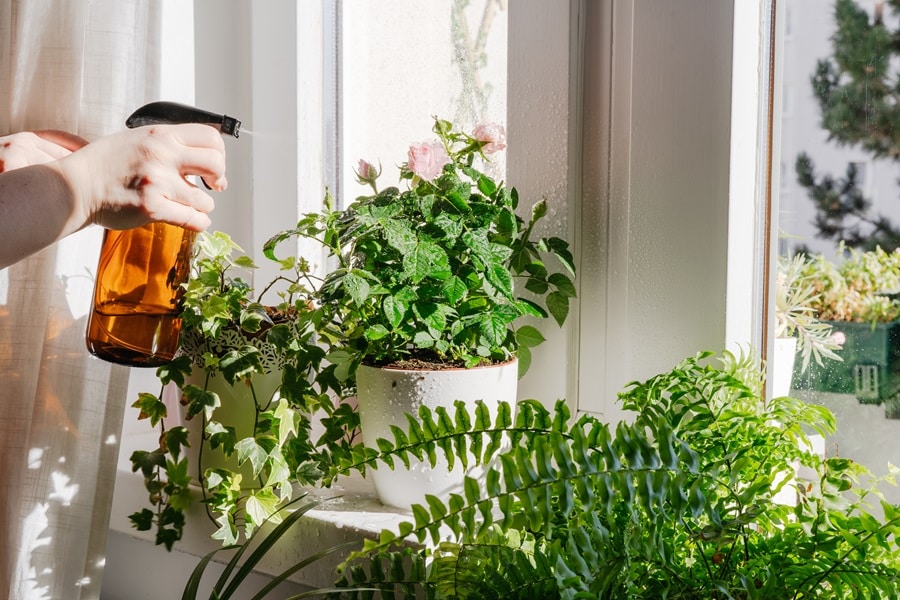Cleaning products play a vital role in keeping your home tidy and hygienic. However, not all of them are created equal, and some may contain harmful chemicals that can pose a threat to your health and the environment. With the overwhelming number of options available in the market, it’s essential to know which cleaning products to avoid. In this article, we’ll highlight some of the most common household cleaning products that you should steer clear of and provide safer alternatives to help you maintain a clean and healthy living space.
Contents
How To Use Household Cleaning Products Correctly
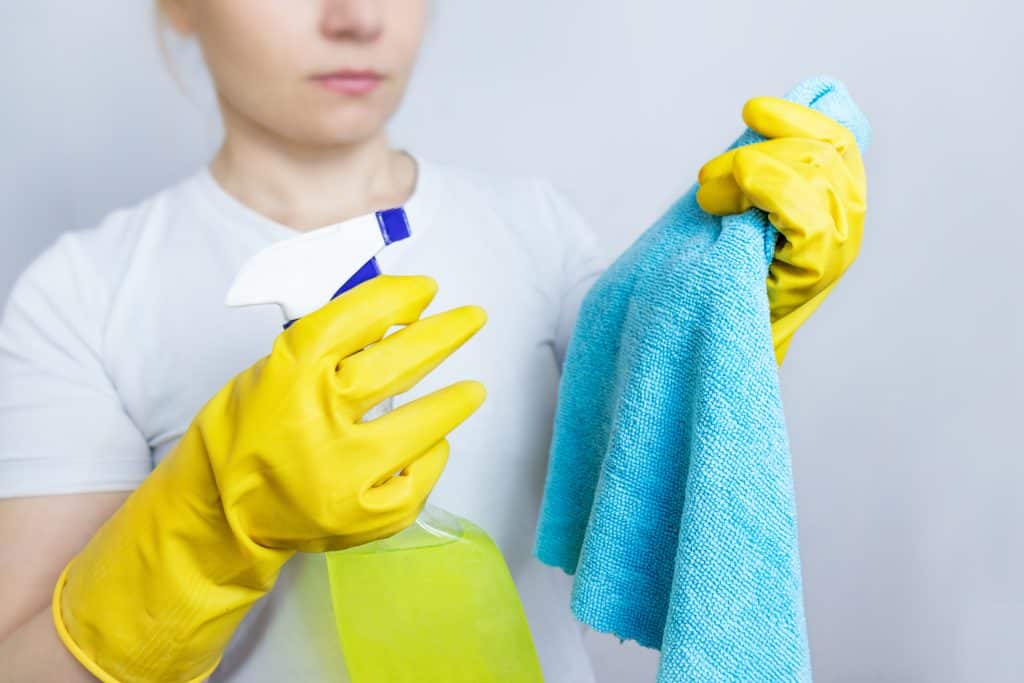
Effective household cleaning involves more than just buying and using cleaning products haphazardly. To ensure you are using these cleaning products correctly, you need to adopt the right approach. This means taking into account the type of surface you are cleaning, the concentration of your cleaner, and the time you allow for the product to work. It is essential to follow the instructions on the label and wear gloves if necessary to avoid skin irritation.
Additionally, ensure you store the cleaning products safely out of reach of children and pets. Using household cleaning products correctly will not only ensure the cleanliness of your home but also prevent accidents and damage to surfaces.
Common Household Cleaning Products To Avoid
Along with using cleaning products safely, it is also important to know which harmful ingredients and chemicals they may contain that can be hazardous to your health and the environment. The following are some of the common household cleaning products you should avoid as much as possible:
Oven Cleaner
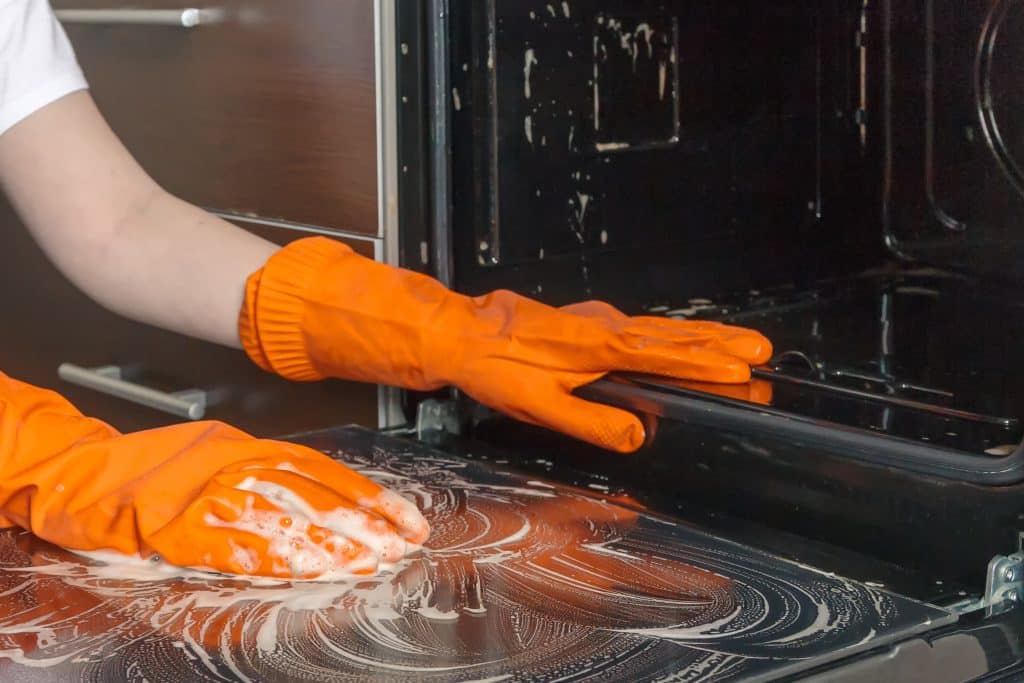
Oven cleaner is a prime example of a cleaning product that should be avoided. Its strong chemicals can cause serious health issues, especially if used in a poorly ventilated room. Furthermore, oven cleaner often takes time and effort to fully remove from surfaces, meaning residue can linger in your kitchen long after cleaning.
If you’re looking for a safer alternative, try natural cleaning solutions like vinegar or lemon juice. You may also consider using a baking soda paste, which is an effective and non-toxic cleaning option for ovens.
Chlorinated Bleach
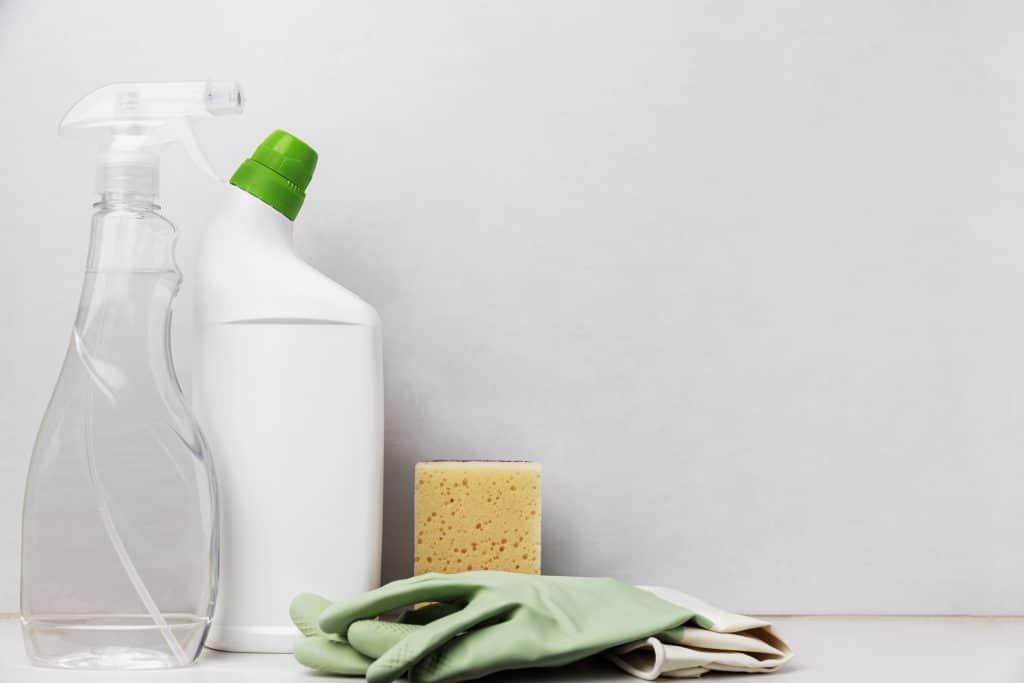
Many households turn to chlorinated bleach as a go-to cleaning product to keep their homes spotless and sparkling. However, what many people don’t realize is the potential harm that this chemical can cause. Chlorinated bleach is a potent oxidizing agent that can release dangerous fumes if mixed with other cleaning products, such as ammonia or vinegar.
In addition, the fumes from bleach can irritate the eyes, nose, and throat, leading to respiratory problems. Furthermore, it has been linked to causing skin irritation and even burns. With its potential hazards, it’s important to reconsider using chlorinated bleach and explore safer alternatives for a cleaner, healthier home.
Upholstery Cleaners
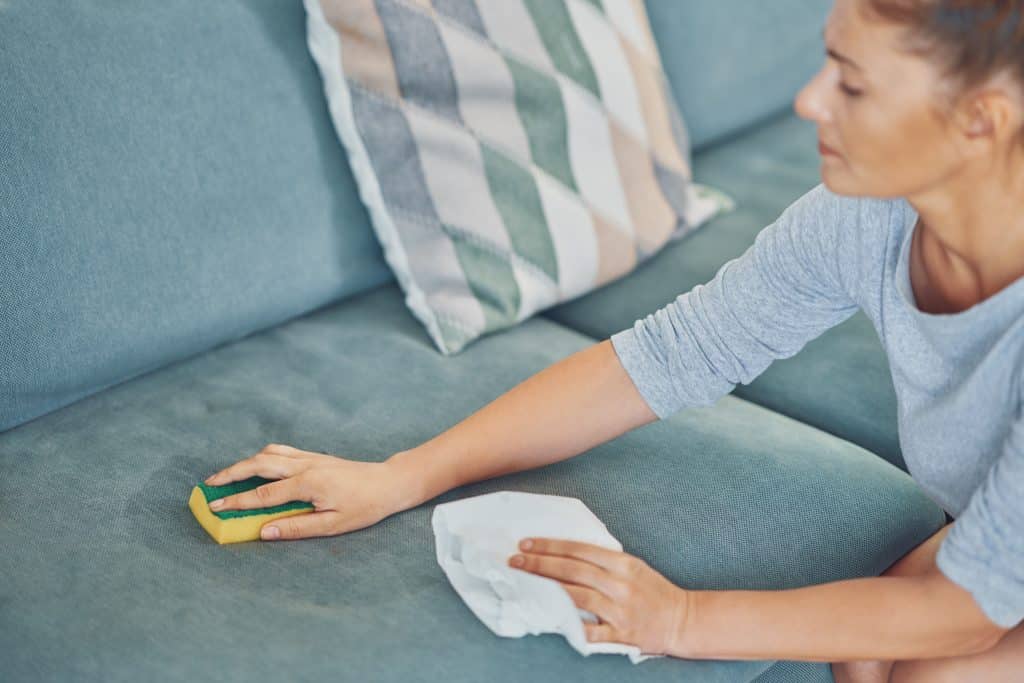
Upholstery cleaners are a convenient solution for those looking to rid their furniture of stains and dirt. However, what many fail to realize is that these products often contain a chemical called Perchloroethylene or PERC. PERC is a solvent commonly used in dry cleaning, but it’s also popularly found in upholstery cleaners. This toxic chemical has been linked to several health issues, such as headaches, dizziness, and even kidney damage.
PERC can also be harmful to the environment, as it can contaminate soil and water sources. Considering such risks, avoiding upholstery cleaners containing PERC is essential for safeguarding both your health and the environment. Instead, opt for safer natural solutions for you and the planet.
Drain Cleaner
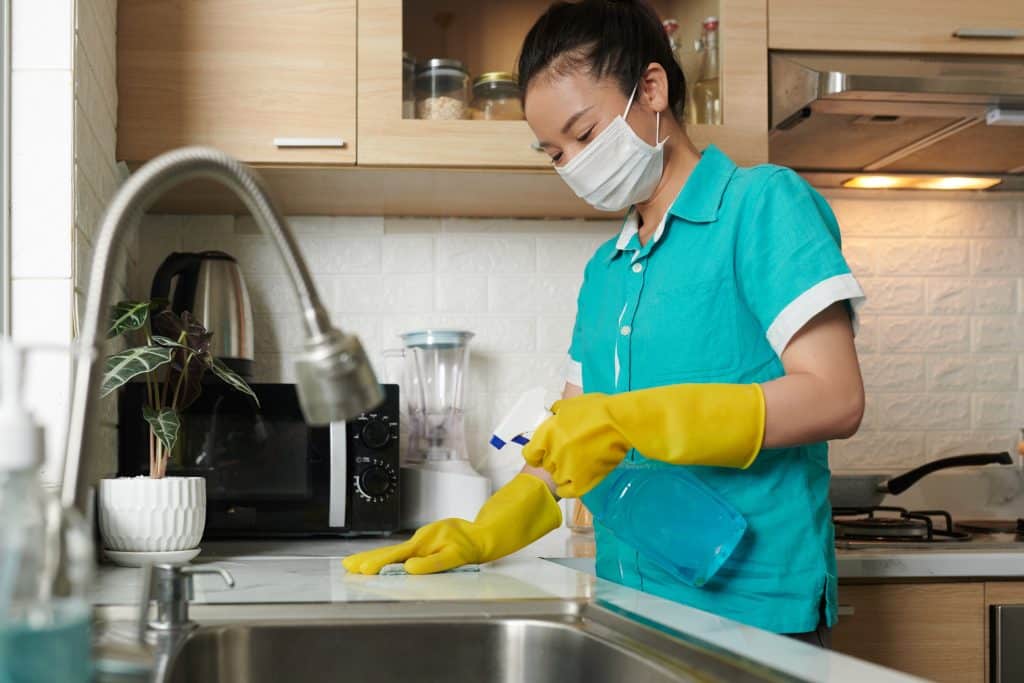
All too often, people turn to drain cleaners as an easy solution to unclog pipes and get rid of unwanted blockages. However, these products can be extremely dangerous and harmful to both you and the environment. Drain cleaners contain harsh chemicals that can cause burns, respiratory problems, and even blindness if used improperly. Furthermore, these chemicals can enter your water systems and harm marine life.
Finding alternative solutions for clogged drains is important, such as using a plunger or snake tool or calling a professional plumber for assistance. Protect yourself and the environment, and avoid using drain cleaner as a household cleaning product.
Antibacterial Cleaners

Antibacterial cleaners have become an increasingly popular way of keeping your home clean and germ-free. However, recent research has shown that these products may not be as effective as many people once thought and can actually have negative consequences on your health and environment. The overuse of antibacterial cleaners can lead to the development of antibiotic-resistant bacteria, making it harder for you to fight off infectious diseases. Additionally, the chemicals in these cleaners can contribute to air pollution and water contamination, damaging your ecosystem.
Instead of relying on antibacterial cleaners, opting for traditional cleaning methods such as soap and water can still effectively remove germs while being safer for your health and environment. It’s essential to be aware of the potential risks associated with antibacterial cleaners and make informed choices when it comes to using them.
Ammonia Glass Cleaners
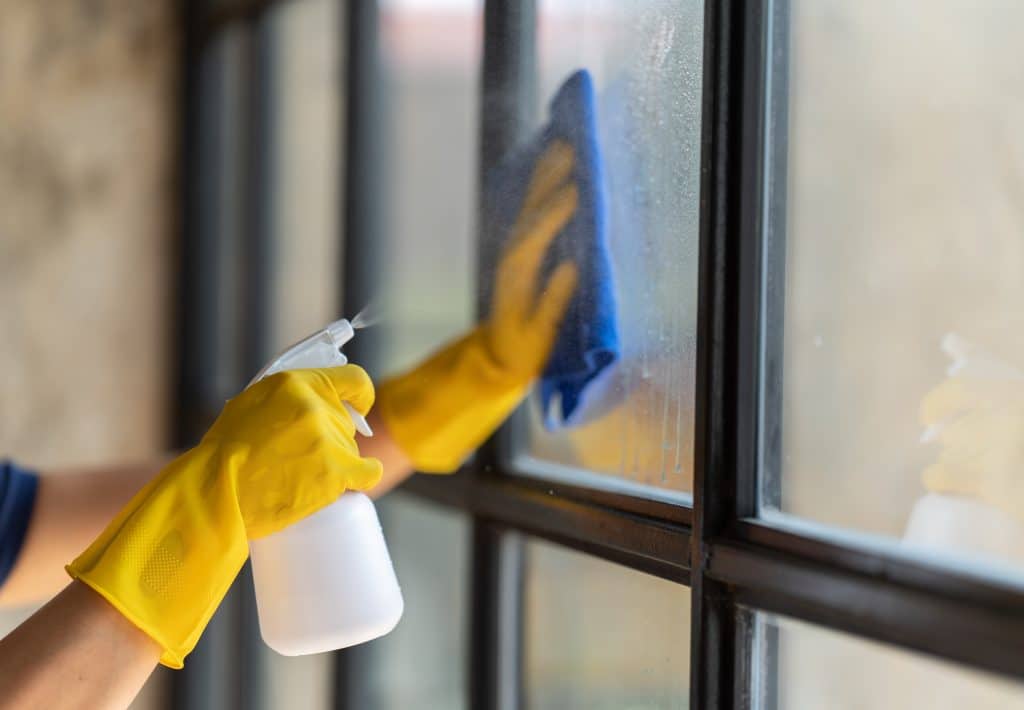
While glass cleaners that contain ammonia have been common in households for years, recent studies have shown that avoiding this cleaning product is a wise decision. The reason is simple: the fumes from ammonia products can be harmful to one’s respiratory system. In fact, ammonia is a powerful irritant that can trigger asthma and other respiratory problems. Moreover, it is not uncommon for ammonia-based cleaners to be mixed with other chemicals, such as bleach, which can produce dangerous fumes.
While it may be tempting to reach for ammonia-based window cleaners to get a streak-free shine, it’s important to consider the health risks before using such products in your home. Instead, opt for non-toxic, eco-friendly alternatives that can get the job done safely and effectively.
Mildew Removers
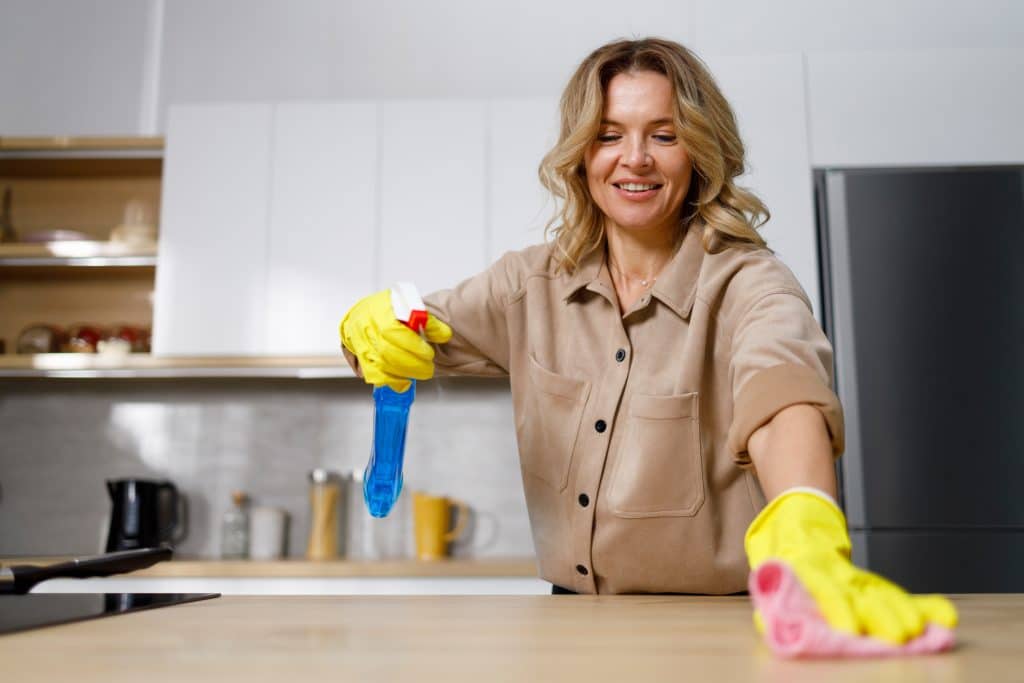
Mildew removers may seem like a convenient solution when trying to tackle those pesky black spots in your bathroom or kitchen, but you should think twice before using them. Not only are they potentially harmful to your health and the environment, but they can also damage the surfaces you are using them on. Many mildew removers contain harsh chemicals like bleach and ammonia, which can cause respiratory problems and skin irritation.
Additionally, the fumes from these products can be toxic when inhaled, making them especially dangerous for people with respiratory issues. It’s important to remember that there are safer, more eco-friendly alternatives to mildew removers, such as vinegar, baking soda, and essential oils.
Be Mindful Of These Common Household Cleaning Products!
It’s essential to take into consideration the risks associated with these common household cleaning products. While many of these cleaning agents may appear to be safe, they can actually have serious consequences on one’s health and the environment. Always research the ingredients in each product and opt for eco-friendly alternatives whenever possible. Doing this will help ensure a clean and safe home environment for you and your family.


